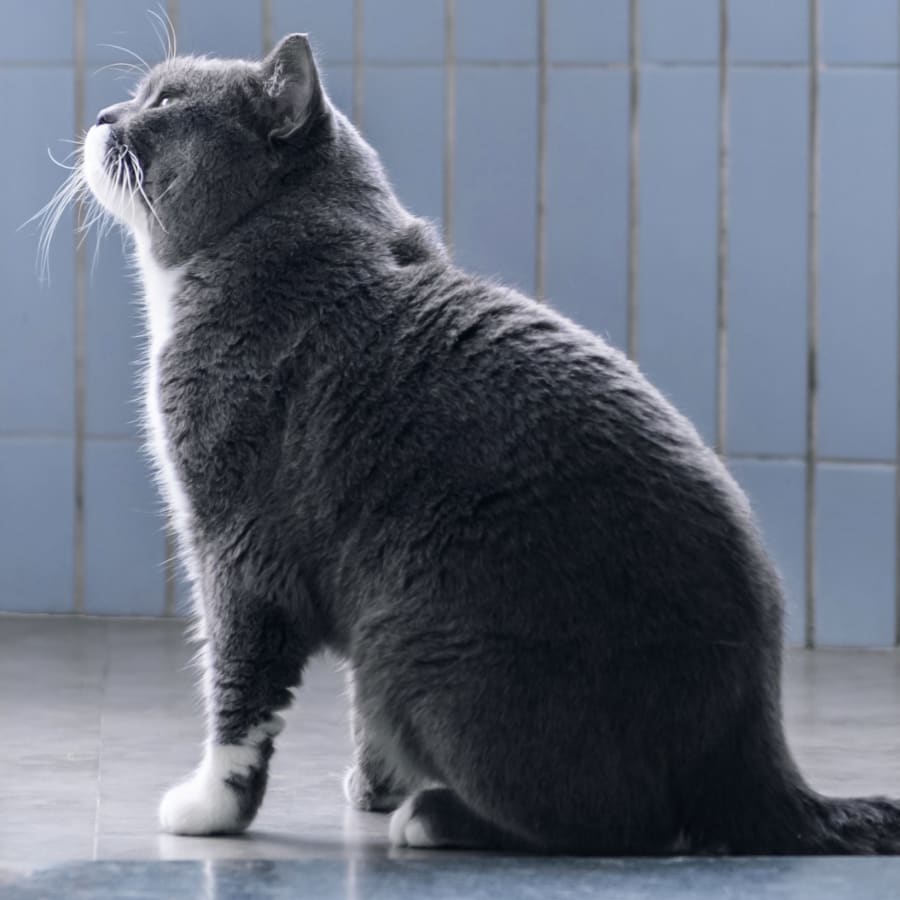Geriatric Vet Care for Senior Dogs & Cats
Senior pets require routine preventive veterinary care and early diagnosis throughout their golden years to help them maintain a good quality of life as they age.
Diligent care can help extend your pet's life and good health as they age, so it's important that they attend regularly scheduled wellness exams, even if they seem healthy.
In Westfield, our veterinarians help geriatric pets achieve optimal health by identifying and treating emerging health issues early on and providing proactive treatment while we can still effectively and easily manage them.

Typical Health Problems
Companion cats and dogs are now living significantly longer than in the past, owing to improved dietary options and improved veterinary care.
While this is certainly something to celebrate, pet owners and veterinarians are now confronted with a greater number of age-related conditions than in the past.
Senior pets are frequently predisposed to the following ailments:
- Joint or bone disorders
Geriatric Dogs
A number of joint and bone disorders can cause pain and discomfort in your senior dog. Our veterinarians commonly see arthritis, hip dysplasia, osteochondrosis, decreased spinal flexibility, and growth plate disorders in geriatric pets.
Taking care of these issues early on will keep your dog comfortable as they age. Analgesics and anti-inflammatory drugs are used to treat joint and bone issues in senior dogs, as well as surgery to remove diseased tissue, stabilize joints, and reduce pain.
Geriatric Cats
While we usually associate osteoarthritis with older dogs, this painful condition can also affect your senior cat's joints.
Osteoarthritis symptoms in cats are more subtle than in dogs. Weight loss, loss of appetite, depression, change in general attitude, poor grooming habits, urination or defecation outside the litter pan, and inability to jump on and off objects are all common symptoms of osteoarthritis in geriatric cats. Cat owners are less likely to report lameness than dog owners.
- Cancer
Cancer is thought to kill approximately half of all pets in the United States. As a result, it is critical for your senior pet to have routine wellness exams as they age.
Bringing your geriatric pet in for routine checkups, even if they appear healthy, allows your veterinarian to look for early signs of cancer and other diseases that respond better to treatment when caught early.
- Heart Disease
Geriatric pets, like their human counterparts, can suffer from heart disease.
Congestive heart failure (CHF) is a common ailment in older dogs. It occurs when the heart's ability to pump blood efficiently decreases, resulting in fluid buildup in the heart, lungs, and chest.
Cats are less likely than dogs to develop heart disease, but Feline Hypertrophic Cardiomyopathy (HCM) is more common in cats. Cats with this condition have thicker heart walls, which makes it harder for the heart to pump effectively.
- Blindness and hearing loss
Degeneration of the eyes and ears in older pets can result in varying degrees of deafness and blindness, although this is more common in dogs than cats.
When these conditions are age-related, they may manifest gradually, allowing geriatric pets to adjust their behavior and making detection difficult.
- Liver disease
Liver disease is common in older cats due to hypertension or hyperthyroidism. Pigmentation, vomiting, diarrhea, and increased thirst are all signs of liver disease in cats.
Seizures, vomiting, diarrhea, fever, jaundice, abdominal fluid buildup, and weight loss are all signs of liver disease in dogs.
Veterinary care is required if your elderly pet shows signs of liver disease.
- Diabetes
Although dogs and cats can develop diabetes at any age, the majority of dogs diagnosed with diabetes are between the ages of 7 and 10, and the majority of cats diagnosed with diabetes are older than 6 years.
Excessive thirst, increased appetite with weight loss, cloudy eyes, and chronic or recurring infections are all signs of diabetes in dogs and cats.
In both cats and dogs, obesity is a risk factor for diabetes.
- Kidney disease
The function of a pet's kidneys tends to deteriorate as they age. In some cases, medications used to treat other common conditions in geriatric pets can cause kidney disease.
Chronic kidney disease cannot be cured, but it can be managed through a combination of diet and medications.
- Urinary tract disease
Veterinarians at Westfield frequently treat elderly pets with urinary tract problems and incontinence. The muscles that control the bladder weaken with age, making older pets more prone to accidents. However, incontinence can be a sign of a more serious health problem, such as a urinary tract infection or dementia.
If your elderly pet has incontinence problems, you should take him to the vet right away so he can be thoroughly examined.
Geriatric Veterinary Care for Seniors
Our veterinarians will conduct a thorough examination of your senior pet, inquire about their home life in detail, and conduct any necessary tests to gain additional insight into his or her general physical health and condition.
We'll recommend a treatment plan based on the findings, which may include medications, activities, and dietary changes to help improve your senior pet's health, well-being, and comfort.
Routine Pet Wellness Exams
Preventive care is critical to your senior pet's health, happiness, and fulfillment. It also allows our vets to detect diseases early.
Early disease detection can save your pet's life and catch emerging health issues before they become long-term issues.
Regular physical exams give your pet the best chance of long-term health.

